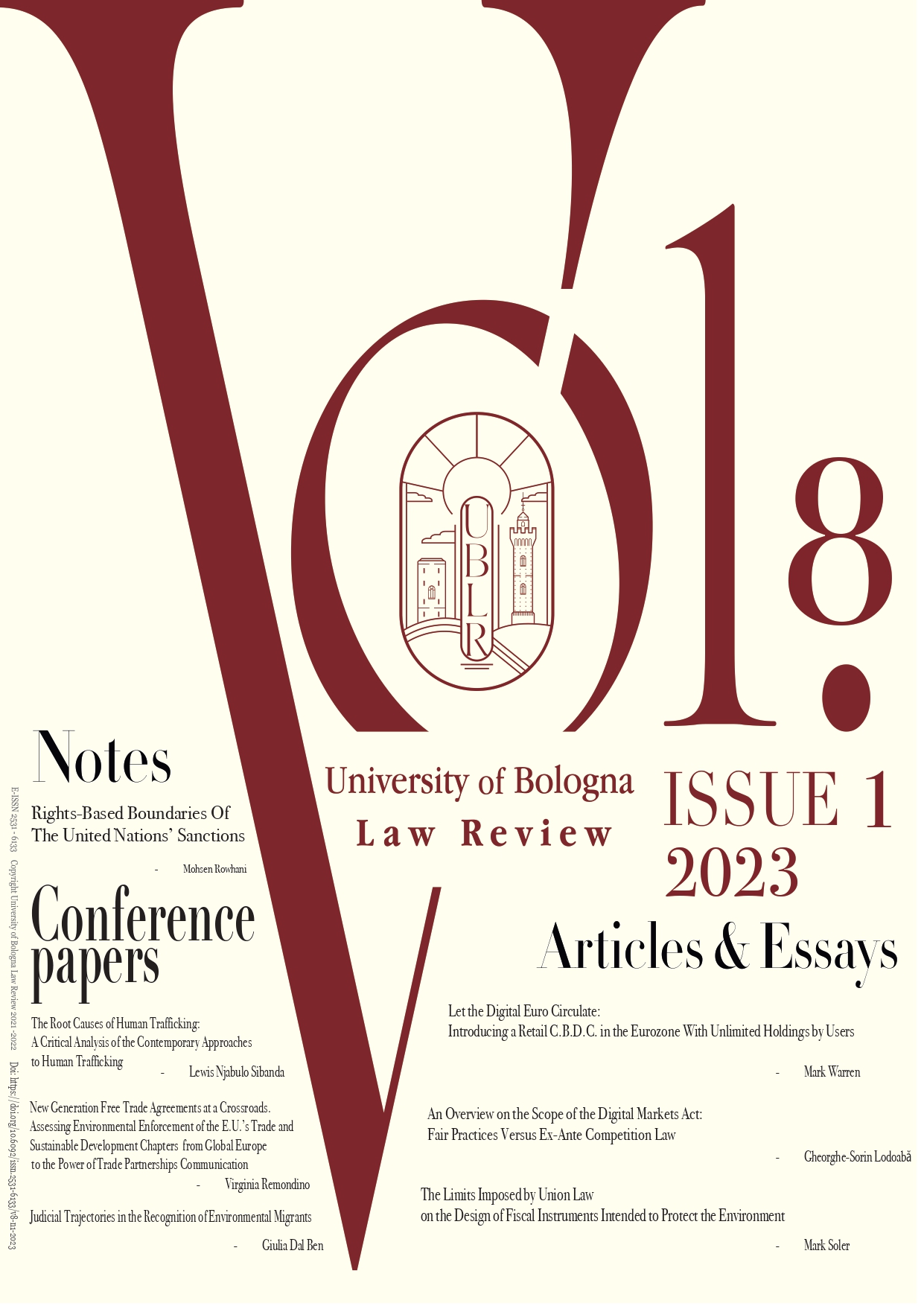The Root Causes of Human Trafficking: A Critical Analysis of the Contemporary Approaches to Human Trafficking
DOI:
https://doi.org/10.6092/issn.2531-6133/18050Keywords:
Anti-trafficking, Root Causes, Systemic Injustice, Neoliberalism, CapitalismAbstract
Contemporary anti-trafficking approaches reflect a reluctance to address the root causes (structural issues) of the human trafficking problem. The article critically analyses the three dominant approaches to combating human trafficking-criminalisation approach, the human-rights based approach and the celebrity humanitarianism approach-and unpacks the political choices inherent in each one of them. It is argued that common to all three approaches is the depoliticisation of the human trafficking problem through conceptualising it as an instance of individual criminals that act outside the boundaries of a liberal society, which is characterised by individual freedom and equality. By so doing, these approaches depoliticise the issue of human trafficking by not viewing the problem as one that emanates from the global political economy. They overlook and perpetuate the inequality and oppression that is inherent in capitalism. Against this background, the article unpacks the various ways that the law, particularly through criminalisation and the international human rights framework, works to insulate and reinforce the systemic injustices at the centre of the trafficking problem. Effectively the current anti-trafficking approaches only serve to produce and excuse violations rather than remedy them. It is argued that to be effective anti-trafficking approaches must focus on the initiating phenomena (the structural issues) that make people vulnerable to trafficking related exploitation.
Downloads
Downloads
Published
How to Cite
Issue
Section
License
Copyright (c) 2023 Lewis Njabulo Sibanda

This work is licensed under a Creative Commons Attribution 4.0 International License.














